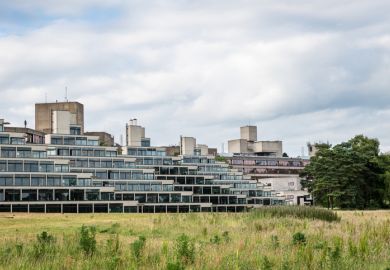Academics in the UK fear they are facing “excessive” workloads that could trigger a “health and safety crisis” as they attempt to clear marking backlogs on tight deadlines following the end of the University and College Union’s five-month boycott.
The action was brought to an abrupt end on 6 September after a vote among union members, with the worst-affected universities making it clear that staff had to begin marking again as soon as possible because thousands of students remain in the dark about their final grades.
This has prompted a pushback from the union, with members arguing the timelines are not achievable alongside other workloads at the busy start of the year.
Campus collection: Time management skills for agile academics
The row is set to inflame tensions again, with five days of strikes also planned to disrupt welcome weeks at the end of September as part of the dispute over wages and workloads.
At the University of Cambridge, the latest figures showed that of 4,090 undergraduate students who should have graduated in the summer, only 59 per cent did so while only 30 per cent of non-finalists had received their marks.
A spokesman said the university believes “affected students should not wait any longer than necessary to receive their marks” and it was “prioritising the completion of marking so that students can get on with their lives as soon as possible”.
Staff who submit all outstanding marking by 30 September – allowing final exam board meetings to take place before a 16 October deadline – will have pay deductions refunded, he said.
But Michael Abberton, president of the Cambridge UCU branch, said there were “thousands of unmarked exam scripts and dissertations across this university” and “completing that marking to the standards which our students deserve will take time and it can’t be done overnight.”
“Imposing unachievable deadlines which generate unreasonable demands on staff doing marking and administrators will be counterproductive,” he added.
“We took national strike action because workloads were already at impossible levels. We will take the steps necessary to stop the pressures on our members over the return of marks triggering a health and safety crisis for staff.”
At the University of Edinburgh, about 1,600 students did not know their degree outcome at the time of graduation. A spokesperson said its “focus remains on working with colleagues towards the completion of any outstanding marking at the earliest opportunity”.
The co-presidents of the Edinburgh UCU, Sophia Woodman and Cat Wayland, said in a joint statement that the branch “is focused on supporting our members to ensure that completing outstanding marking does not result in excessive and unsustainable workloads”.
The latest developments have also left members questioning the union’s overall strategy, given it was long known its mandate for taking action would lapse at the end of September. The union has announced it will hold a third ballot to extend the action but this will run from 19 September until 3 November, meaning, even if sufficient numbers vote yes, it will not be able to call further strikes until mid-November at the earliest.
Michael Carley, a senior lecturer in mechanical engineering at the University of Bath, said there were “serious questions” to answer over “the failure to plan for a reballot and to have a contingency plan in case there was no new mandate”.
“Members who have done all they were asked to do now find themselves exposed to management pressure with no protection from being in lawful industrial action,” he added.
Meanwhile, a statement from Durham University UCU branch said it has estimated 70 per cent of 5,300 finalists had been impacted earlier in the summer and a “high proportion of these students likely remain in limbo”.
The backlog staff now have to clear amounts to as much as 100-150 hours of outstanding marking for some, the branch said, but there had been no “clear guidance as to how the additional work will be accommodated within regular contracted hours”.
A spokesman for the university said the “vast majority” of students now had their degrees or a “guaranteed interim award” and it had written to staff asking them to “complete all outstanding marking as a matter of the highest priority”.
“We are very aware of workload implications for colleagues and will issue further guidance on priorities and timelines very soon,” he added.
Register to continue
Why register?
- Registration is free and only takes a moment
- Once registered, you can read 3 articles a month
- Sign up for our newsletter
Subscribe
Or subscribe for unlimited access to:
- Unlimited access to news, views, insights & reviews
- Digital editions
- Digital access to THE’s university and college rankings analysis
Already registered or a current subscriber? Login








